 There is a divine Principle in which we can have total confidence. It's an infallible, absolute, invariable, concrete and substantial Principle that provides security in life. In Christian Science, divine Principle is another way of describing God - not a man on a throne, a superhuman god - but that which is the cause and source of all that is true and good. If it doesn't meet the criteria of being true AND good, it doesn't correspond with the order of Principle. The divine Principle of life is powerful, strong, illuminating, liberating. Principle is real. It is a present help in any situation. Principle is just, impartial, available, universal, unconfined and glorious. Divine Principle is the fundamental basis of everything, the origin and ultimate of all that is real. Principle is stable, positive, precise and demonstrable. It commands obedience, integrity, health and harmony. Why? Because divine Principle reproduces its own characteristics. The divine Principle is perfectly reflected in its own creation. True law (that which under-girds human justice and is unassailable by variable opinions) is an attribute of this Principle. That is, the law that counts, the law that protects and enforces good is sourced in Principle. Two verses from the Bible shed light on this Principle: Thine, O Lord, is the greatness, and the power, and the glory, and the victory, and the majesty: for all that is in the heaven and in the earth is thine; thine is the kingdom, O Lord, and thou art exalted as head above all. Both riches and honour come of thee, and thou reignest over all; and in thine hand is power and might; and in thine hand it is to make great, and to give strength unto all. (I Chronicles 29) Every good gift and every perfect gift is from above, and cometh down from the Father of lights, with whom is no variableness, neither shadow of turning. Of his own will begat he us with the word of truth, that we should be a kind of firstfruits of his creatures. (James 1:17, 18) 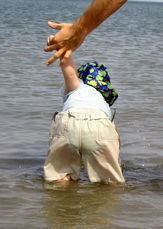 The divine Principle of life is Love, universal and divine Love. If you feel the term Principle seems distant or cold, think of divine Love and you will have a good idea of it. One of my favorite things to think about is that Principle without Love would be like steel - cold, hard and unyielding. And Love without Principle would be like jam - lacking structure, stability or form. But Principle IS Love - perfectly balanced in strength and tenderness, in power and affection, in authority and support. Christian Science discoverer Mary Baker Eddy uses imagery that I think describes so well the tenderness of divine Principle, when she writes of the ocean, "able to carry navies, yet yielding to the touch of a finger." (The First Church of Christ, Scientist and Miscellany, 121) With an understanding of God as divine Principle comes a sense of the omnipotence, omniscience and omnipresence of the law of good. And with it we can begin to drop the sense of limitation in God or in his creation - the spiritual man and the spiritual universe. Divine Principle is expressed through its own laws, in its own kingdom - the kingdom of all that is real and permanent - the realm of Spirit. The concept of another realm or another control - ie matter or material law - is an illusion that a better understanding of the divine Principle erases. Christ Jesus walked on water in direct violation of material law, but in obedience to the spiritual law of Love. This gave him complete mastery over the wind and waves. Moses divided the Red Sea in disobedience to the laws of physics that would render the act impossible. But his obedience to Principle and His unswerving commitment to follow Love's leading out of Egyptian bondage opened the way to demonstrating the higher spiritual law that was in place and accessible to him. Matter and material law are not a real substance to be controlled, improved, healed, by turning to divine Principle in prayer. Prayer that reveals that there is only one true Principle or law, one true substance of life - Spirit - adjusts our reality view. Spirit is expressed in the spirituality that breaks the illusion of matter and its so-called laws, restrictions and problems. A miracle fulfills God's law, but does not violate that law. (Eddy, Science and Health with Key to the Scriptures, 134 )  Miracles aren't really exceptional. What many term a miracle is the natural activity of the divine Principle that is understood to be God in Christian Science. In the beginning of my public practice I had a case that resulted in a resuscitation of life from death. As it turned out, it wasn't more or less difficult a case than any other. I was on my knees hand-washing the kitchen floor when the call came explaining that a person had died. I was asked to pray by the nurse in attendance. I did. I knelt back down and continued washing the tile as I prayed. My prayer was a gentle, yet firm, affirmation that the divine Life that is God is manifest normally and continually - that is, that neither God nor his creation can be interrupted in being. The normal activity of man, under the perpetual control of the Principle of life, only includes the expression of the Life that is God, not death. I was aware of the ease with which I returned to washing my floor after the call. I hadn't been shocked by the news. I then realized that this man, too, could continue with his day without being shocked by the belief that life could suddenly end, when it couldn't. Life really is eternal. My words, here, seem somewhat feeble to explain the deep significance of what I saw of spiritual reality in that prayer. My prayer wasn't difficult or complicated. It was completely logical and natural. I wasn't a bit afraid. I didn't feel I was engaged in a great battle with death. My prayer was a simple witness to the divine Principle of life that holds all creation in Life, God, without rupture, without interruption. The patient revived. Ten or so minutes after his sudden decease, he sat up - and not in a state of recovery, but in a better state of health than before he passed. And he continued on in good health. This kind of things happens more often than we may realize. To go deeper as you consider Principle, remember that:
The divine Principle that is God holds you completely secure in life. Like? Please share. Let's spread the good.
Not a subscriber and want to be? It's easy! Just sign up in the sidebar. You may also wish to: VISIT MY WEBSITE HOME PAGE FIND LINKS TO MY OTHER PUBLISHED CONTENT LISTEN TO A COLLECTION OF MY "YOUR DAILY LIFT" 2-MINUTE PODCASTS  Is it possible for us to live without fear of deterioration, aging, disease and death? I take on this question in my lecture Unending Life Within Your Reach, now available online for the next few weeks. Sponsored by First Church of Christ, Scientist, Watford, Hertfordshire, UK, the lecture was recorded live at the Palace Theatre in Watford on January 21, 2014. This one hour lecture introduces a Christian Science perspective of life before birth, the human experience and immortality. It presents the life of Mary Baker Eddy, founder of Christian Science, in the context of the religious and scientific questioning of her time on the subject of life and the afterlife. It addresses common questions about Christian Science and its contemporary practice:
Did you enjoy this post? Did you find it helpful?
The readership of this blog is growing by leaps and bounds due to readers like you - sharing, emailing, tweeting, and posting the link so that others can find it. If you wish to subscribe, simply scroll up and submit your email in the box shown in the sidebar. You may also wish to: VISIT MY WEBSITE HOME PAGE FIND LINKS TO MY OTHER PUBLISHED CONTENT LISTEN TO A COLLECTION OF MY "YOUR DAILY LIFT" 2-MINUTE PODCASTS
Jesus made his first unique appearance as a baby born to a virgin. This indicated off the bat the special nature of his relationship to the Christ. He may have appeared to those around him to be a fragile infant, but he wasn’t weak. He came to this world with an already developing understanding of His nature as God’s Son. Where did this understanding come from? He later would explain what he knew of his eternity. He said, “Before Abraham was, I am.” See the switch? Where you and I might consider life as occurring on a limited human timeline – the was and will be line beginning with birth and ending in death – Christ Jesus lived on the is line of eternity, where existence isn’t broken down into was, is and will be, but simply always is. Jesus' well-developed spiritual sense allowed him to see his own eternity, and this gave him power and authority over fear, sin, disease and death. Christ Jesus experienced life - his and everyone's - as immortal. His sense of himself included the knowledge of life before human birth and the continuity of his forever life as God’s son. What Jesus explained about real life came from a personal knowledge of God, not only as his Source, his Father, but as the real Father and Mother of us all. Jesus was a revelator of the eternal Christ, the eternal expression of divine Life. The Christ-message to humanity, that life is eternal and that we had better get on with living our real life free of sin and sorrow and hate, is just as important to us today as it was when Jesus walked the earth. Jesus gave us an example to follow, through his words and life, that develops in us our innate spiritual sense and leads to the understanding of real life as eternal. "When mortal mind is silenced by the "still, small voice" of Truth that regenerates philosophy and logic; and Jesus, as the true idea of Him, is heard as of yore saying to sensitive ears and dark disciples, "I came from the Father," "Before Abraham was, I am," coexistent and coeternal with God, — and this idea is understood, — then will the earth be filled with the true knowledge of Christ." To be sure you don't miss something,
you can have new posts delivered to your email inbox. Simply subscribe in the sidebar. And if this post is meaningful to you, it may also help others. Please share! You may also wish to: VISIT MY WEBSITE HOME PAGE FIND LINKS TO MY OTHER PUBLISHED CONTENT LISTEN TO A COLLECTION OF MY "YOUR DAILY LIFT" 2-MINUTE PODCASTS 6/18/2012 I will love, if another hates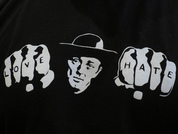 "I will love, if another hates. I will gain a balance on the side of good, my true being. This alone gives me the forces of God wherewith to overcome all error." (Miscellaneous Writings 1883-1896, 104) These immortal words of Mary Baker Eddy rang through to my thought yesterday as I heard a powerful story recounted by Ulrike Prinz, CS, of Hamburg, Germany, in her lecture entitled "A Christian Science Response to Hate and Violence." I was very moved by what I heard, and I am grateful to have found the source of the story on the internet. At the bottom of this post, you will find hyperlinks to the original book and biographical info on the co-authors. 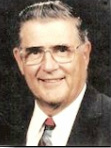 George Ritchie, PhD "When the war in Europe ended in May 1945, the 123rd Evac entered Germany with the occupying troops. I was part of a group assigned to a concentration camp near Wuppertal, charged with getting medical help to the newly liberated prisoners, many of them Jews from Holland, France, and eastern Europe. This was the most shattering experience I had yet had; I had been exposed many times by then to sudden death and injury, but to see the effects of slow starvation, to walk through those barracks where thousands of men had died a little bit at a time over a period of years, was a new kind of horror. For many it was an irreversible process: we lost scores each day in spite of all the medicine and food we could rush to them. "Now I needed my new insight indeed. When the ugliness became too great to handle I did what I had learned to do. I went from one end to the other of that barbed wire enclosure looking into men's faces until I saw looking back at me the face of Christ. "And that's how I came to know Wild Bill Cody. That wasn't his real name. His real name was seven unpronounceable syllables in Polish, but he had long drooping handlebar mustaches like pictures of the old western hero, so the American soldiers called him Wild Bill. He was one of the inmates of the concentration camp, but obviously he hadn't been there long: his posture was erect, his eyes bright, his energy indefatigable. Since he was fluent in English, French, German and Russian, as well as Polish, he became a kind of unofficial camp translator. 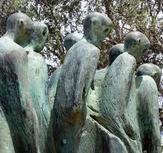 "We came to him with all sorts of problems; the paper work alone was staggering in attempting to relocate people whose families, even whole hometowns, might have disappeared. But though Wild Bill worked fifteen and sixteen hours a day, he showed no signs of weariness. While the rest of us were drooping with fatigue, he seemed to gain strength. "We have time for this old fellow," he'd say."He's been waiting to see us all day." His compassion for his fellow-prisoners glowed on his face, and it was to this glow that I came when my own spirits were low. "So I was astonished to learn when Wild Bill's own papers came before us one day, that he had been in Wuppertal since 1939! For six years he had lived on the same starvation diet, slept in the same airless and disease-ridden barracks as everyone else, but without the least physical or mental deterioration. "Perhaps even more amazing, every group in the camp looked to him as a friend. He was the one to whom quarrels between inmates were brought for arbitration. Only after I'd been at Wuppertal a number of weeks did I realize what a rarity this was in a compound where the different nationalities of prisoners hated each other almost as much as they did the Germans.  As for the Germans, feelings against them ran so high that in some of the camps liberated earlier, former prisoners had seized guns, run into the nearest village and simply shot the first Germans they saw. Part of our instructions were to prevent this kind of thing and again Wild Bill was our greatest asset, reasoning with the different groups, counseling forgiveness. "It's not easy for some of them to forgive," I commented to him one day as we sat over mugs of tea in the proceeding center. "So many of them have lost members of their families." "Wild Bill leaned back on the upright chair and sipped at his drink. "We lived in the Jewish section of Warsaw," he began slowly, the first words I had heard him speak about himself. 'My wife, our two daughters, and our three little boys. When the Germans reached our street they lined everyone against a wall and opened up with machine guns. I begged to be allowed to die with my family, but because I spoke German they put me in a work group." "He paused, perhaps seeing again his wife and children. 'I had to decide right then,' he continued, 'whether to let myself hate the soldiers who had done this. It was an easy decision, really. I was a lawyer. In my practice I had seen too often what hate could do to people's minds and bodies. Hate had just killed the six people who mattered most to me in the world. I decided then that I would spend the rest of my life, whether it was a few days or many years, loving every person I came in contact with.'" (An excerpt from the book "Return from Tomorrow" by George G. Ritchie with Elizabeth Sherrill, published by Fleming H. Revell, A division of Baker Book House, Grand Rapids, MI., pgs. 113-116) Thank you, Ulrike Prinz, for bringing this story out for your audience in Paris. Love it? Please share it. Let's work together to share the love.
Your shares reach and bless many, many others. If you aren't yet a subscriber, a full-text version of the blog can be delivered to your email inbox. It's easy to sign up in the sidebar. You may also wish to: VISIT MY WEBSITE HOME PAGE READ MORE BLOG POSTS FIND A LIST OF MY OTHER PUBLISHED CONTENT 6/11/2012 Life without age or decay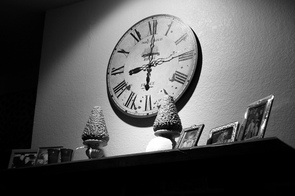 A year or so after my first husband passed on, I caught a glimpse of a white head and wrinkly face on the living room mantle. I took a closer look at the last photo taken of him. I had no recollection of him like that. He had been 34 years older than me; and yet, even after fifteen years of marriage, I had never noticed the age difference. In my eyes, he never acted or looked older. I showed my daughter the photo and asked if she remembered her dad as aging. She didn't, either. A “Portrait of Dorian Gray” moment? I don’t think so. My husband just didn’t see himself as an aging mortal. He didn’t live his life that way. So, we didn’t see him that way either. I can only remember him as strong and handsome, vibrant and active. The photo may have captured the world’s belief about age, but he never looked like that. Some months after the photo incident, I read an account of a woman whose child had drowned at about eighteen months. Seven or so years later, the mother still deeply grieved. Praying to have the heaviness lifted off her heart one afternoon, the mom fell asleep and dreamed. She saw a young woman, beautiful, who looked to be in her late twenties. The woman said to her, "I am happy, don't be sad." When she awakened, the grief was gone. 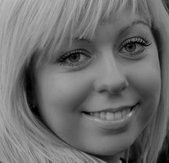 Had she seen her daughter in the dream? According to a mortal timeline, the child would have only been 8 or 9. But it occurred to the mom that she had seen her daughter – but not as a mortal or a ghost. She glimpsed the eternal idea of God, reflected by her daughter – beautiful, healthy and alive. She realized that while she, the mom, had believed her daughter had passed through mortal stages of infancy and toddlerhood, and that then her life had been brutally interrupted; that, in fact, she had only and always existed at her highest and best, as the mature and magnificent reflection of the divine, unending Life who is God. The Psalmist said of God, “You will not abandon me to the grave, nor will you let your Holy One see decay. You have made known to me the path of life.” (16:10,11) Mary Baker Eddy wrote in Science and Health with Key to the Scriptures, "The radiant sun of virtue and truth coexists with being. Manhood is its eternal noon, undimmed by a declining sun." (246) If manhood (including womanhood) is the eternal noon of virtue and truth, and if this is the “path of divine Life” that God makes known to us, could it be that babyhood, adolescence and old age are simply mortal, limited views of a spiritual being that only ever exists at its highest and most beautiful?  A year or so after my husband passed on, I also dreamed of him one night. In the dream, he was preparing to work on the roof. In a brief conversation we said how much we loved each other. Then he climbed the ladder and disappeared. In this dream he looked exactly as I always saw him – active, healthy, brimming with purpose. I didn’t see an age or stage. In fact, he seemed ageless. Pulling these pieces together in thinking about true being, I have a whole new sense of existence at “eternal noon”. God’s man is not, and never has been, an immature mental, emotional or physical being. We are neither underdeveloped (babies), overdeveloped (aged), nor under a state of development (uncomfortable, agitated adolescents). God’s creation exists right now at its highest and best. That is how God, as Mind, creates and reveals each one of us, His perfect ideas. We are neither dimmed by decline nor needing to grow brighter to reach our noon. We are always the brightest and best. Each one of us! And this day is about recognizing some yet undiscovered (but very present) aspect of our brilliance – true spiritual being at its eternal noon - and simply letting it shine.  Lord, you have assigned me my portion and my cup; you have made my lot secure. The boundary lines have fallen for me in pleasant places; surely I have a delightful inheritance. I will praise the Lord, who counsels me; even at night my heart instructs me. I have set the Lord always before me. Because he is at my right hand, I will not be shaken. Therefore my heart is glad and my tongue rejoices; my body also will rest secure, because you will not abandon me to the grave, nor will you let your Holy One see decay. You have made known to me the path of life; you will fill me with joy in your presence, with eternal pleasures at your right hand. (Psalm 16:5-11, NIV) If you like what you see in this blog, please share the link with your friends, fans and followers!
A full-text version of the blog can be delivered to your email inbox. Please subscribe in the sidebar. You may also wish to: VISIT MY WEBSITE HOME PAGE READ MORE BLOG POSTS FIND A LIST OF MY OTHER PUBLISHED CONTENT 3/14/2012 The mourner can be comforted When someone passes on, it isn't unusual to be drawn toward the poignant recollection of the ups and downs of our relationship with them. Sometimes deep appreciation surfaces. At other times wounds of regret or loss are laid bare. What can we do with the grief? The Bible tells how the patriarch Abraham dealt with his wife Sarah's passing after a long and fruitful relationship. Abraham wept for her, but he didn't remain immobile with the heaviness of an unhealed grief. Noting this, The Interpreter's Bible concludes "It is not right that grief should be allowed to become a paralyzing bondage." (Abingdon Press, 1951-1957, Vol 1, p.649) 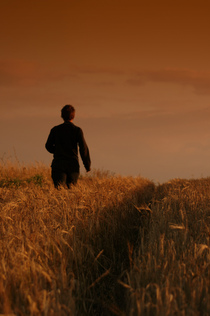 _ I had just walked into the kitchen with an armful of groceries when I noticed my husband hanging up the telephone. He looked serious. I put the groceries on the table and he turned to me with these words: “Your brother died. He had a heart attack.” I sat down at the kitchen table and kept thinking, “I don’t believe this.” Then, came a quiet thought: “Don’t believe it”. I thought: “This can’t be true.” Another gentle message came: “You’re right. It isn’t true.” I stayed with these thoughts for some time. I took them deep into my heart. I lived with them during the next few days as my family and I made arrangements for my brother’s funeral. 11/6/2011 Questions from the heart: Would I be me? What is God? - A guest blog by Kay Ramsdell Olson, CSB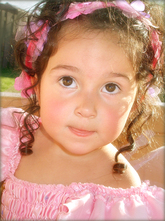 When I was six years old, this question popped up in my thought: “Would I be me if my mom and dad hadn’t had me?” An answer came, swift and unequivocal. “Yes”. I don’t remember that I thought about it much at the time, or that I told anyone about it. But I do remember that it made me feel good. I grew up and kept busy with square dancing and voice lessons and 4-H projects. As busy and happy as I was, another question bounced around in my thought from time to time: “What is God?” I loved my church and Sunday school, yet as often as I asked, no clear answer came. I knew the Bible promise, “Seek and ye shall find; knock and it shall be opened unto you.” (Matt. 7:7) So, I sought and knocked and waited. Fast forward to my college years. My roommate and I decided we would tackle the question "What is God," and keep at it until we found an answer. One night, we looked out the window into the starry night and thought. And thought. And thought. Finally, my roommate blurted out: “God is!” We stared at each other. OK. That had to satisfy for now. |

Find me on YouTube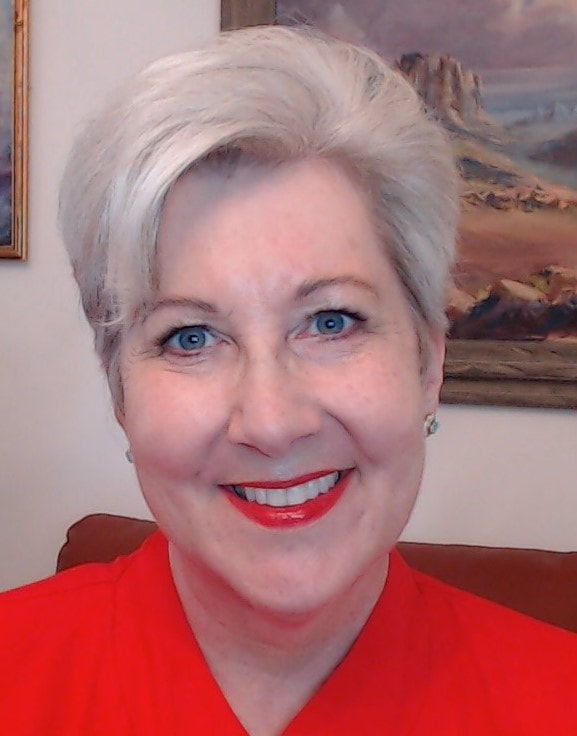
I have practiced Christian Science professionally in some form since 1979. But my journey with Christian Science started in a Sunday school where as a young child I was taught the Scriptures and some simple basics of Jesus' method of scientific Christian healing. A significant experience at the age of twelve opened my eyes to the great potential of this practice. After impaling my foot on a nail, I prayed the way I had learned in Sunday school. Within moments the pain stopped and healing began. By the next morning the wound had disappeared completely. Having experienced the great potential of Christian Science, there would be no turning back. |
INFORMATION |
SERVICES |
HELP |
© 2011-2024 Michelle Boccanfuso Nanouche, CSB. All rights reserved. Pages updated July 1, 2024.


 RSS Feed
RSS Feed
